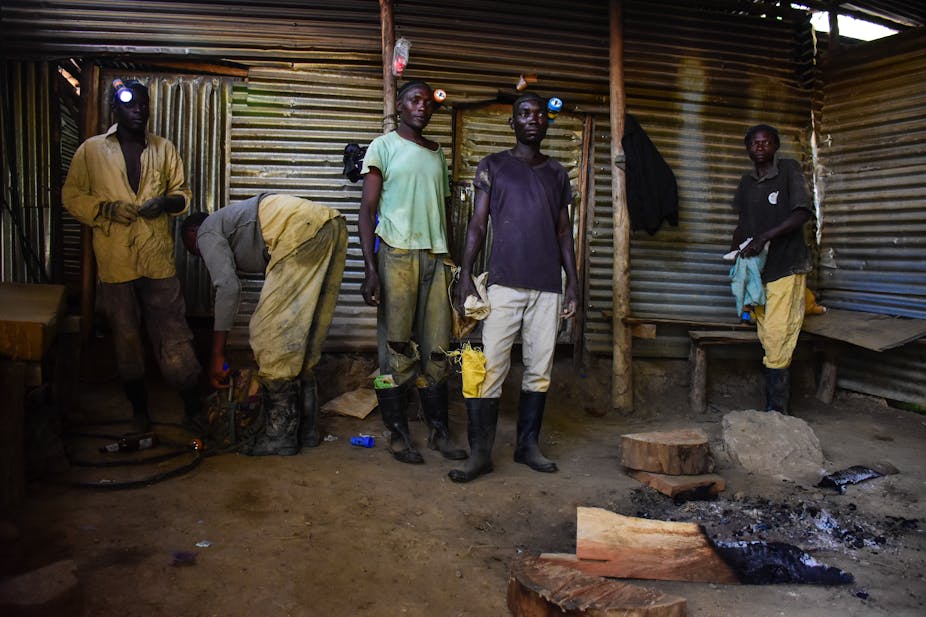In a country like Kenya, artisanal and small-scale mining represents a significant proportion of gemstone mining. Taita Taveta County is the largest producer of gemstones, with artisanal and small-scale mining accounting for over 60% of its annual production. Gemstone mining is a source of employment and an important foreign exchange earner for both the national and county governments.
The coronavirus pandemic has affected artisanal and small-scale mining all over the world. Kenyan miners haven’t escaped the fallout. Since the first case of COVID-19 was reported on March 12, 2020, the Kenyan government has taken steps to manage its spread. These have included social distancing, travel restrictions, suspension of social gatherings as well as the closure of the Kenya-Tanzania border due to the surging COVID-19 numbers in Tanzania.
The COVID-19 crisis has accentuated the pre-existing challenges facing the mining economy, particularly artisanal mining. One of these is the lack of strong institutions to protect the lives of the artisanal and small-scale miners as well as the environment. The Kenya Mining and Minerals Policy provides guidelines on the development of mining and mineral resource sectors. But artisanal mining still faces barriers to technological, workplace, social and environmental protections.
Artisanal miners are vulnerable on a range of fronts. The mining they do is informally organised and labour intensive, and uses rudimentary mining methods. Many miners have low levels of education and technical capabilities, and lack access to good market information. Poverty is prevalent in mining communities. These factors reduce their bargaining power when selling gemstones. In addition, most mines are located in remote areas with little access to appropriate healthcare infrastructure.
A project started last year aims to bring together mining stakeholders in Taita Taveta to try to reverse these trends by designing bottom-up solutions for a more responsible and inclusive mining sector. The Sustainable Artisanal and Small-Scale Mining project is led by the University of Nottingham and funded by the Global Challenges Research Fund.
As part of the project we have maintained contact with miners in Taita Taveta County. When the COVID-19 pandemic broke out, we conducted short telephonic interviews with 16 artisanal miners which we have transcribed. These interviews have provided us with a rare insight into the impact that COVID-19 is having on the sub-sector.
The miners’ working conditions expose them to significant health and safety risks. They lack appropriate protective gear and equipment. Their communal living hostels are congested and lack good sanitation and water provision. These conditions make compliance with hygiene and social distancing requirements challenging. Miners have no disposable income to purchase water, soap or personal protective equipment necessary to fight COVID-19.
Living through COVID-19
The COVID-19 measures have slowed down artisanal mining activities, which has affected the livelihoods of miners and mining communities. The suspension of mining operations in Taita Taveta since March 26, 2020 halted gemstone production.
And there have been significant disruptions in the value chain. For example, international travel restrictions continue to affect market access and prices. Most miners interviewed experienced market price fluctuations triggered by international dealers’ inability to buy gemstones.
At the national level, the COVID-19 environment has created a buyers’ market.
The miners interviewed said they were worried that intermediaries were taking advantage of their ‘hand-to-mouth’ lifestyles to purchase gemstones at incredibly low prices. These miners have no choice but to sell at low prices in order to feed their families. The dealers and exporters with financial capital are stockpiling in order to sell for big profits when the market becomes favourable.
The lack of gemstones revenues is having devastating effects on the well-being of miners. Many said they were experiencing anxiety and some raised mental health concerns.
Many families are relying on humanitarian aid from well-wishers and organisations such as the Taita Taveta County COVID-19 resource mobilisation team. Some miners have turned to farming or selling woven baskets, jewellery and secondhand clothes as alternative sources of livelihood.
What next
In early May the Taita Taveta county government directed the reopening of mines under strict COVID-19 preventative and mitigating measures. The mines are restricted to a maximum of 15 people working in a mining site per shift. This reduced workforce and production capacity, coupled with high costs of mining inputs and food supplies, has increased the risks to the sector.
The pandemic has exposed systemic issues that limit artisanal and small-scale mining abilities to drive socio-economic development in the region.
The sector needs to embrace a comprehensive approach to deliver critically needed infrastructure. This includes proper healthcare, education and living quarters for miners. Long-term interventions also need to be put in place, such as health insurance.
In addition, the value chain systems need to change. This involves developing robust mining data and market information systems, mapping gemstone supply chains, developing a calculated risks index, and establishing a well-organised market infrastructure.
The Voi Gemstone Centre, a government institution, is strategically positioned to support the development of innovative trading platforms and digital tools that help visualise gemstone market flows. It can also coordinate efforts to build capacity for gemstone identification, valuation, marketing and value addition, and artisanal mining financing.
We are optimistic that the pandemic presents an opportunity to rebuild a more resilient sector.

